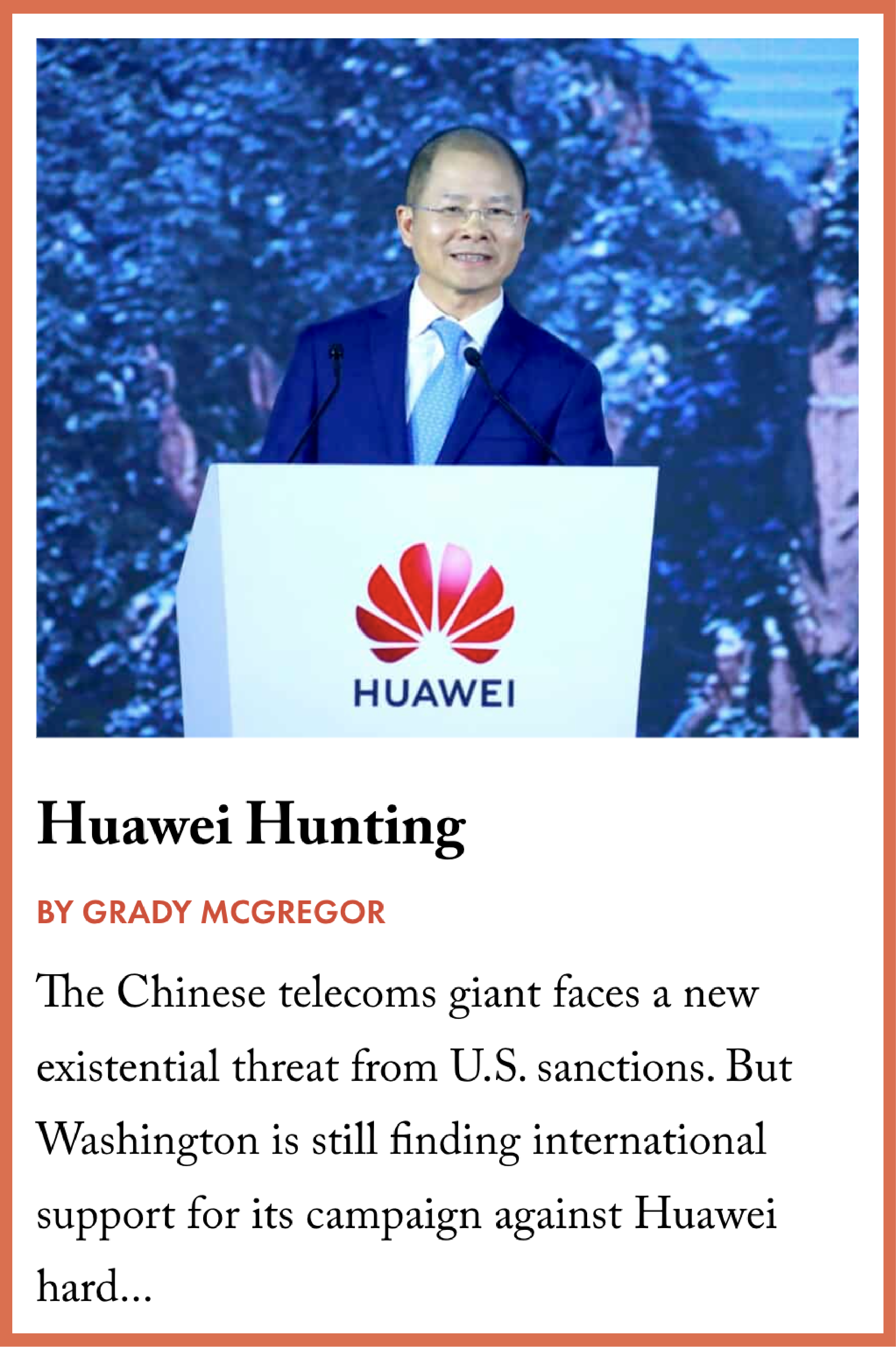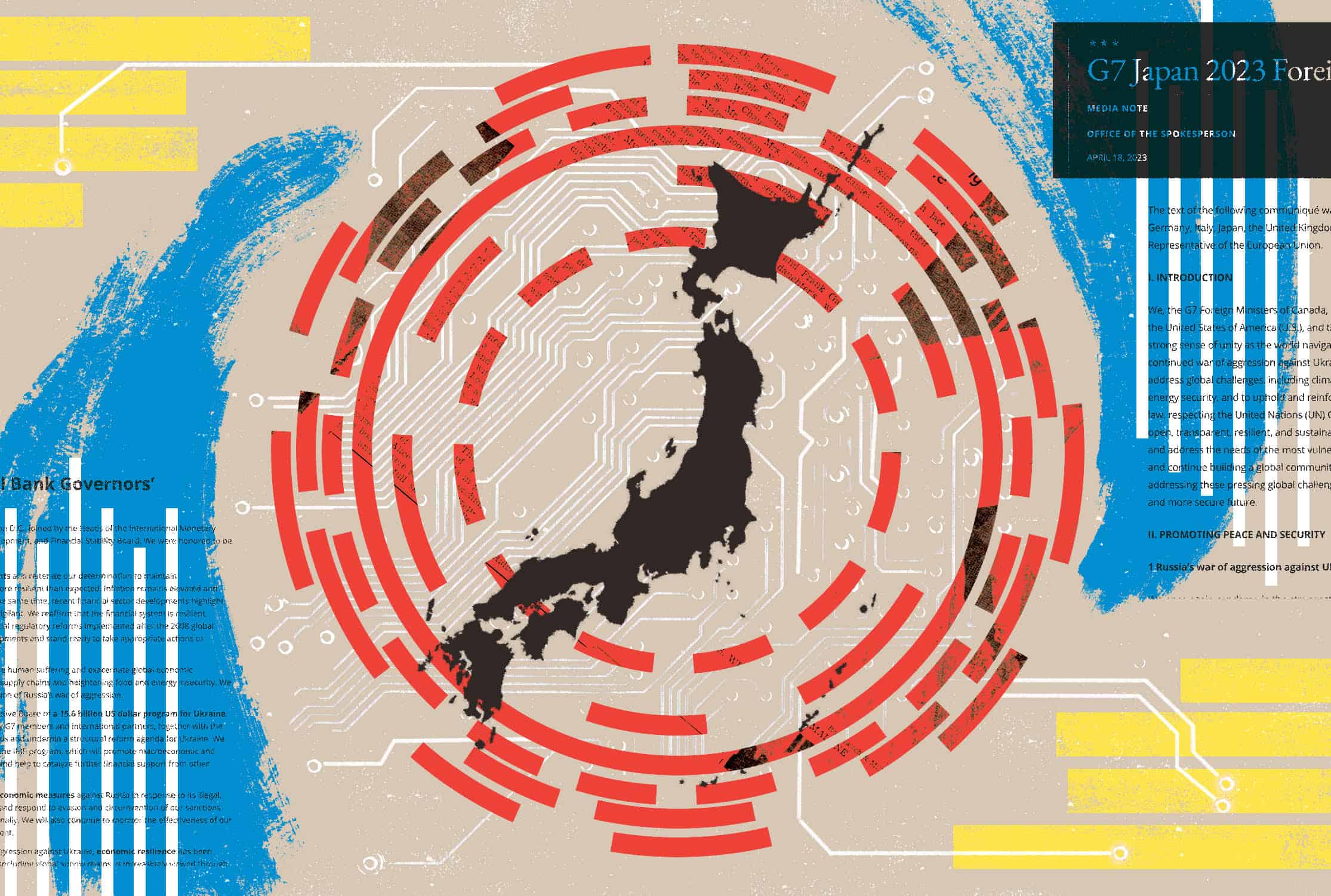
When Japan’s prime minister, Fumio Kishida, welcomes Western leaders to the Group of Seven summit this week, Russia’s invasion of Ukraine will be front of mind. The summit, after all, is taking place in Hiroshima, where the U.S. dropped the first nuclear bomb in World War II, and all of the G7 countries — the U.S., the UK, France, Germany, Japan, Italy, and Canada — have deplored Russia for its “irresponsible nuclear rhetoric” and military aggression.
But for Japan especially, the G7 represents another important opportunity: the chance to discuss economic security, which is broadly defined as the interaction between national security and economics.
 |
|
| Illustration by Nate Kitch | |
| More in this series: | |
| Rare Earth Reshore |  |
The quest for economic security gave life to the G7 some 50 years ago. After the 1973 Arab-Israeli war sent international oil prices soaring, Tokyo and Western leaders looked to each other for help. In Japan, which was heavily dependent on oil imports, the crisis prompted one major editorial to caution that “the very existence of the nation” was on the line. Power-cuts and inflation humbled the once rapidly growing Japanese economy and set about policy discussions on the necessity of protecting the country’s economy.
In the wake of the oil crisis, Tokyo joined together with its fellow advanced economies to establish the G7, an informal forum focusing on economic and financial coordination.
Today, when it comes to economic security, the group is razor-focused on a single challenge: China. In pre-summit communiqués by G7 finance and foreign ministers, China goes unnamed, but the American, European and East Asian allies are all striving to face down Beijing’s economic coercion and lower dependencies on China for critical minerals, batteries, and other strategic goods.

The G7 summit presents the opportunity to coordinate these respective agendas, and experts note that Japan will work hard to make sure its Western allies stay focused.
“Japan is very committed to supporting Ukraine and imposing sanctions on Russia,” says Michito Tsuruoka, an associate professor at Keio University, who specializes in Japan’s relations with Europe, and previously held positions with its Ministry of Foreign Affairs and Ministry of Defense. “But at the same time, we don’t want to see the G7 agenda dominated by Russia and Ukraine. Tokyo wants Asia and economic security to receive significant attention.”
Indeed, many see Japan as an economic security pioneer and say that Tokyo’s prioritization and institutionalization of the issue presents lessons for its American and European allies. As an island nation with a history of outside containment causing bouts of economic harm, Japan has expanded the modern frontiers of economic security by both advancing new regional trade deals and enforcing new trade and investment protections over its economy.
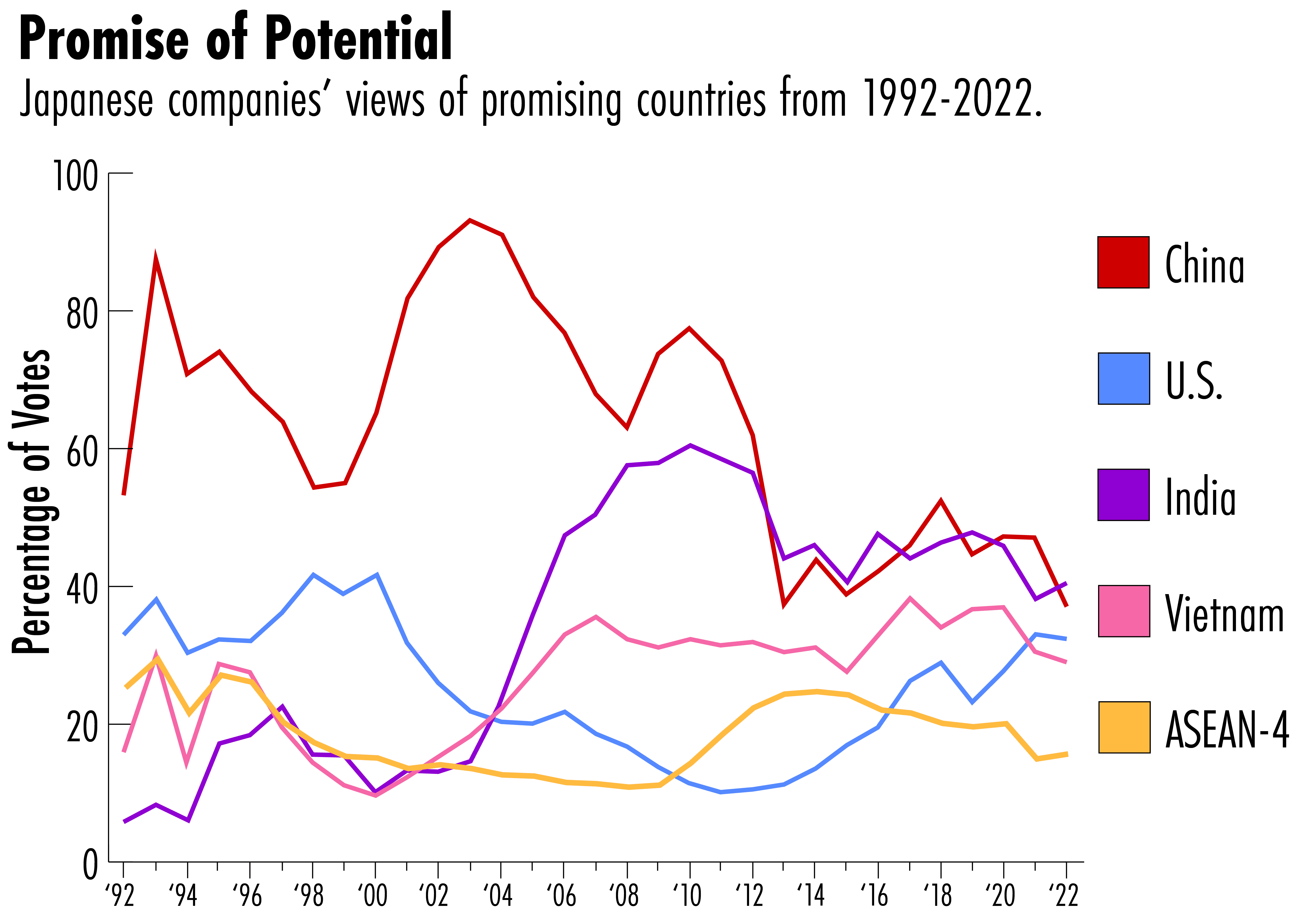
“Two decades ago, people in the ‘West’ may have been confused by the risk averse behavior of Japanese companies,” says Aya Adachi, an analyst at the Berlin-based Mercator Institute for China Studies (MERICS). “But Japan is a few steps ahead of everyone else in managing its economic interdependence with China because of its geographic proximity and early exposure. This makes it an inspiration for other countries.”
Last May, the Japanese parliament even passed the Economic Security and Promotion Act, which focuses on strengthening supply chains, maintaining indispensability in advanced technologies, protecting critical infrastructure and preventing disclosure of sensitive patents. The legislation signaled that Japanese decision-makers not only recognized the new, dangerous geopolitical environment, but that they were ready to act on it as well.
Its Western allies are busy doing the same. After meeting at the White House this March, President Joe Biden and European Commission President Ursula von der Leyen pledged to reinforce transatlantic cooperation by strengthening economic security to face down the “weaponization of economic dependencies” and other threats.
Jake Sullivan discussing America’s supply chains, April 27, 2023. Credit: Brookings
“Our objective is not autarky — it’s resilience and security in our supply chains,” said Jake Sullivan, Biden’s National Security Advisor, in a recent policy speech on reworking global manufacturing networks of strategic goods and renewing America’s economic leadership in the world.
But the dawn of the economic security era does not negate China’s importance to global business. The G7 summit may well hope to harmonize incentives and restrictions for multinationals to diversify their supply chains away from China. But even for Japan, the economic security pioneer, the deep interests of Japanese companies in China may make it difficult to keep the ball rolling.
Last year, China accounted for 13 and 10 percent of American and German trade respectively. For Japan, however, China made up a whopping one-fifth of total trade. Japanese companies also hold the largest foreign investment stock in China.
There is economic interdependence on the one side, and economic security on the other, and Japan wants both.
Saori Katada, professor at University of Southern California and author of Japan’s New Regional Reality: Geoeconomic Strategy in the Asia-Pacific
So while many Western executives may see the calls from their governments to shift production and cut select economic ties with China as “unthinkable” and “impossible,” Japan actually has the most to lose.
“There is economic interdependence on the one side, and economic security on the other, and Japan wants both,” says Saori Katada, professor at University of Southern California and author of Japan’s New Regional Reality: Geoeconomic Strategy in the Asia-Pacific. “How to manage this challenge requires profound thinking in both the policy and business worlds.”
ECONOMIC SECURITY REBORN
As the only non-Western country in the G7, Japan has long used its role in the powerful group to speak on Asia’s behalf.

Strikingly, for a long time, that included standing up for China. According to declassified diplomatic records reviewed by Nikkei Asia, at the 1989 G7 summit outside of Paris, which took place a month after the bloody Tiananmen Square crackdown, Japan’s prime minister, Sosuke Uno, strongly opposed imposing sanctions on China. Tokyo’s Western counterparts pressed on with a punitive response, but Japanese leaders operated behind-the-scenes to avoid Beijing’s complete isolation and later advocated for the quick removal of sanctions.
“At that point, Japan was the broker to get China back into the international community,” says Katada. “Japan worked really hard in the G7 context to project a calming influence, lift the embargoes and bans, and re-engage China. For the West at the time, it was much easier to cut off China than it was for Japan.”
In the years ahead, Tokyo made considerable efforts to invite and engage China in the group’s dialogue and initiatives, even as it didn’t hide its disdain for Russia’s involvement.1Russia officially joined the group in 1998, remaking it as the G8, but was expelled in 2014 after its annexation of Crimea in Ukraine. (Japanese foreign minister Nakayama Taro once compared Russia’s inclusion in the G7 to throwing money into a ditch.)
Japan’s leadership wanted to ensure stability in East Asia, but they also had economic reasons for steadfastly standing by China. Japan was early out of the gate in capitalizing on China’s spectacular growth: by the mid-1990s, China and Hong Kong’s share in Japan’s total foreign investment was three times higher than what they made-up for the United States.

By 2004, China became Japan’s largest trading partner, but already, the seeds of economic security were being planted. After China’s SARS pandemic in 2003, some Japanese manufacturers pursued a China+1 strategy, which aimed to exploit the advantages of production in China while also investing in Southeast Asia to offset their dependencies in the Chinese market. Osamu Watanabe, the president of the Japan External Trade Organization (JETRO), a government-backed trade and investment promoter, even recommended the strategy. (Twenty years after the fact, many Western executives are only now catching on to this best practice as they scramble to hedge sales and production activities in China by engaging Asia’s emerging economies.)
But just as Japanese companies extended their reach across Southeast Asia in an effort to balance their investments in China, American investors continued to pile into China. In the late aughts, cumulative U.S. investment in China challenged, and briefly surpassed, Japan’s activity, helping to propel China’s economy to supplant Japan’s as the world’s second largest economy by the end of 2010.

Although Japanese multinationals did not feel any immediate impact from China’s rise, security troubles in the East China Sea did catch the business world’s attention. Indeed, Beijing’s renewed economic strength coincided with a downturn in political and security relations with Japan.
In late 2008, two vessels belonging to China’s State Oceanic Administration intruded into waters surrounding Japan’s Senkaku Islands, known as Diaoyu in China, on the East China Sea. This marked the first of many more incursions to come, and according to Chisako Masuo, professor at Kyushu University in Japan’s southern coastal city of Fukuoka, “From Japan’s perspective, this clear challenge of Japanese sovereignty represented the biggest turning point in relations with China.”
In 2010, tensions surrounding Beijing’s claims over the islands resulted in China shortly halting the export of rare earths to Japan. (Rare earths are essential inputs for the Japanese car industry.) Two years later, the issue sparked a wave of Chinese consumer boycotts against Japanese brands, causing sales for Japanese automobile makers to plummet. It was a far cry from the days when Chinese paramount leader Deng Xiaoping reportedly called anti-Japan protests “ignorant and naive” for threatening much needed investment and finance from Japanese companies and banks.
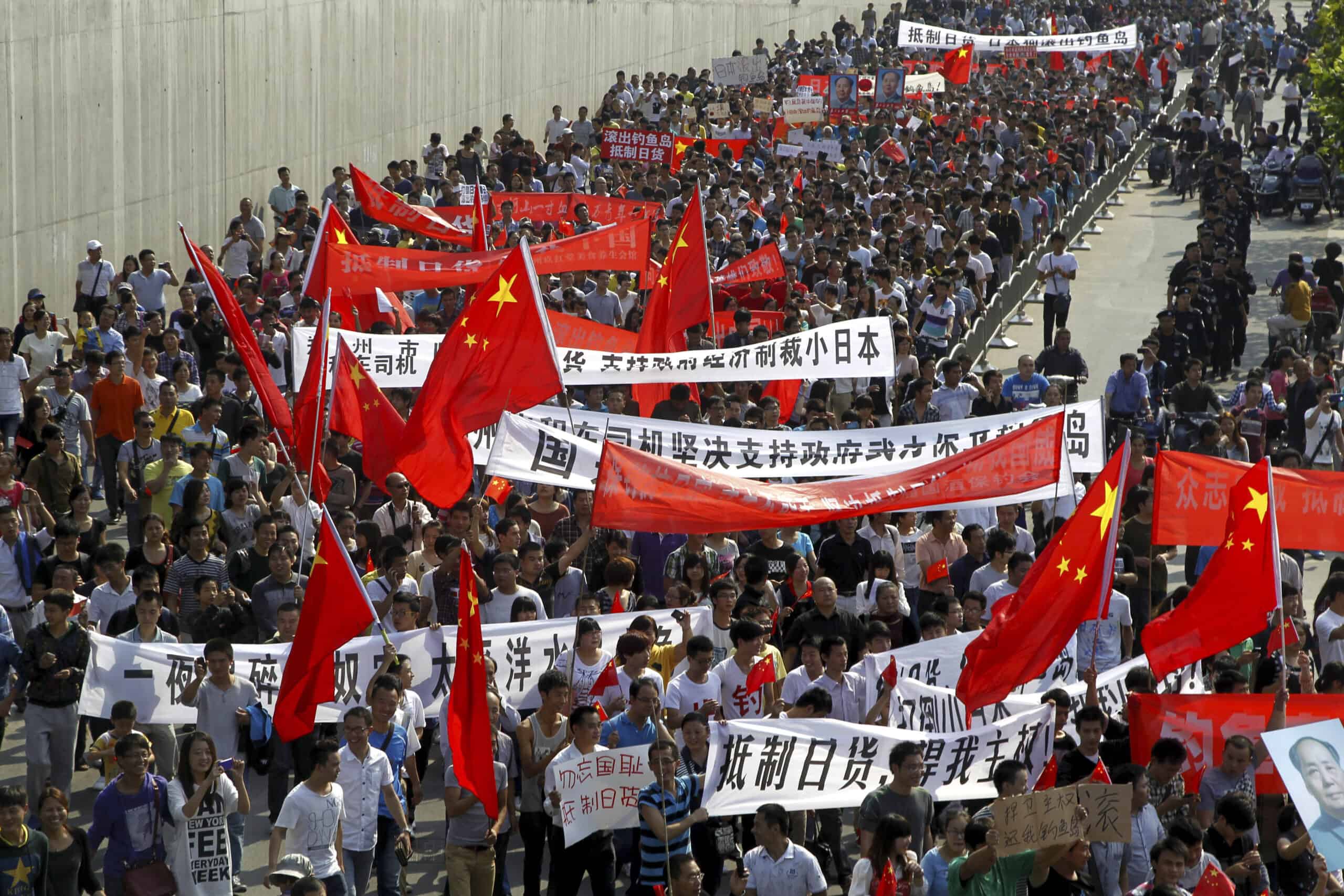
The rapid deterioration of economic ties caught Japan by surprise.
“The Japanese have a lot of experience facing earthquakes, typhoons and tsunamis, so preparedness for supply chain disruption is embedded in normal economic life,” says Kazuto Suzuki, professor of science and technology policy at the University of Tokyo. “But they were less aware of intentional disruption of the supply chain by hostile countries.”
Masuo recalls the Western world not showing much compassion for Japan’s predicament. Although the U.S. reaffirmed its commitment to defend Japan after the incursions, it was also still hoping to negotiate with China, and initially signaled that it didn’t want to get over-entangled in the issue. The mixed messages hit a nerve in Tokyo.
“Japan was very lonely at the time,” Masuo says. “It had to face its security concerns basically on its own.”
China’s Japan boycotts quickly died out, however, and business eventually picked up with Japanese companies re-establishing themselves as China’s largest investors. In 2013, JETRO’s China director Yoichi Maie commented that “there is no market like China,” on account of its advanced industry clustering and strengths in providing local procurement.
Japan has to make sure that cooperation with China takes place simultaneously with competition.
Akio Takahara, professor at the University of Tokyo
The tumultuous 2010s served as a powerful reminder for Japan of the tightrope it had to walk with its larger East Asian neighbor. Indeed, even when tensions were high, Prime Minister Shinzo Abe found a way to balance Japan’s commercial and security relations with China. Before a historic October 2018 visit to Beijing, for instance, Abe indicated Japan might cooperate with projects in China’s Belt and Road Initiative — so long as they were based on sound financial, social, and environmental basis.
“Japan has to make sure that cooperation with China takes place simultaneously with competition,” says Akio Takahara, who specializes in Chinese politics and East Asian international relations at the University of Tokyo. “The Japanese people may have a poor image of China, but they also recognize the importance of the relationship. This means each prime minister has two things to do: Stand firm against challenges and try to improve relations with China.”

The challenges, however, have been mounting in recent years. In addition to the intensifying U.S.-China rivalry, Japan has watched with unease as China increasingly uses economic coercion against its trading partners. For many, it was further confirmation that Beijing no longer separates business from politics in its foreign relations.
But while much of the West debated this turn of events, Japan’s ruling party, the Liberal Democratic Party, took action. In early 2019 it proposed establishing a national economic council tasked with developing a strategy that integrated the economy, diplomacy and national security.
“It was largely a politically-driven process,” says Akira Igata, project lecturer at the University of Tokyo. “The bureaucracy, especially at the ministries of foreign affairs and defense, was against it. But Prime Minister Abe thought the issue was so important that he created a whole new institution to deal with it.”
By the autumn, Abe established a temporary economic security office within Japan’s National Security Council, which, as in the U.S., focuses on Japan’s security and defense interests at the highest levels of government. When Covid-19 hit the following year, the then-fully established office engrossed itself in managing Japan’s response.

In short time, the economic security office boasted more staff than any other unit under the national security council. The Kishida administration went on to create a new cabinet-level post, the economic security minister, among other institutional reforms, setting the stage for passing Japan’s Economic Security Promotion Act in May 2022.
“This is the first legislation in Japan that places the concept of economic security squarely in the middle,” says Igata. “The new law’s ingenuity is in addressing the economic gaps in its national security.”
STAYING INDISPENSABLE
There is still, however, apprehension over the new law — mostly from Japan’s business community.
“Do you know how many direct suppliers we have in our supply chain?” asks Takashi Ito, a senior manager at Mitsubishi Electric. “43,000. And that’s only the first tier. If we include the second tier, the number becomes astronomical.”
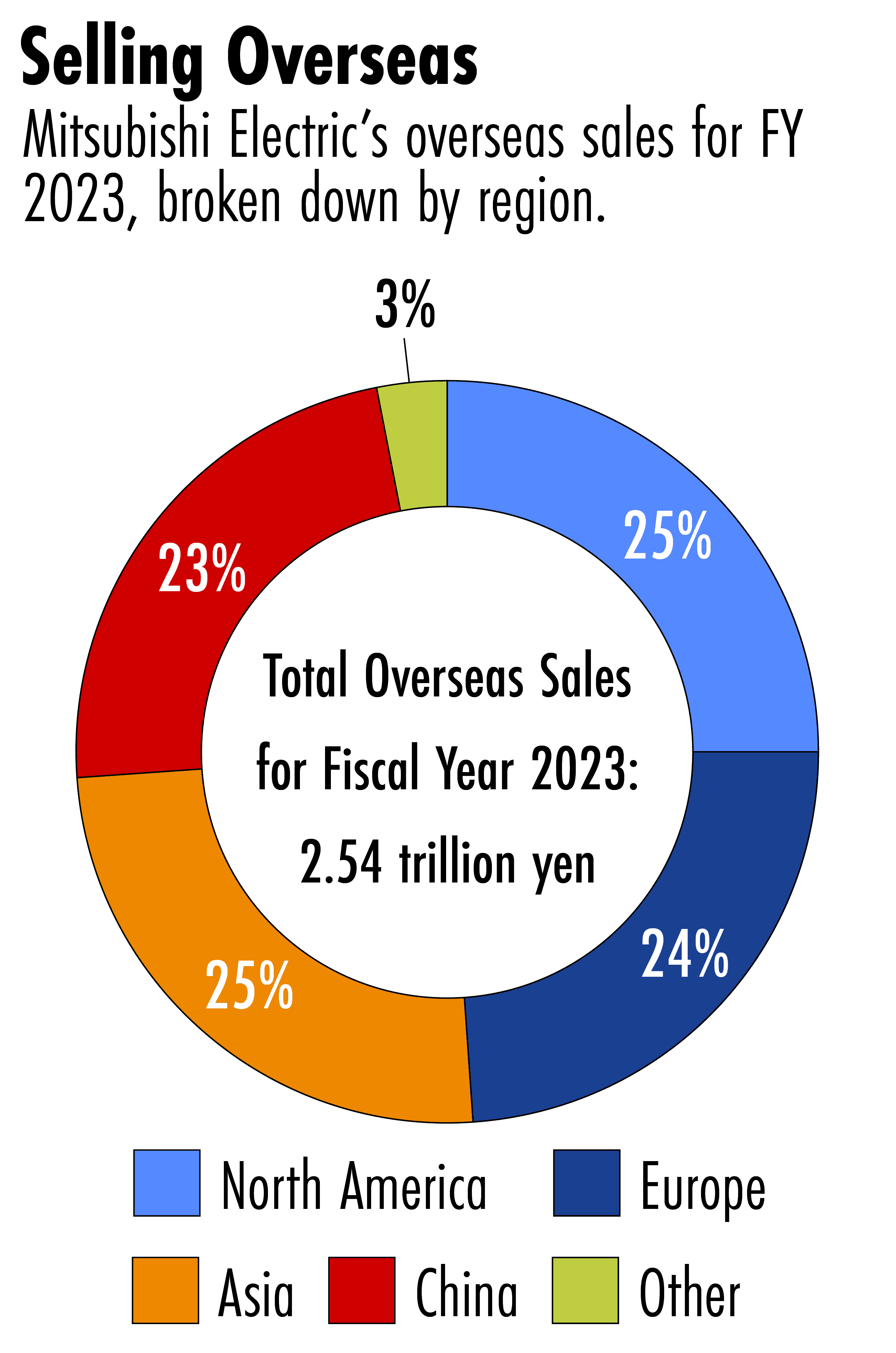
Note: Percentage for Asia excludes Japan and China.
Mitsubishi Electric, one of the four main firms within the Mitsubishi conglomerate, has spent decades spreading its supply chain across almost 40 countries to minimize costs and maximize efficiencies for its products, which include elevators, escalators, home appliances and semiconductors.
Given what is at stake for the $29-billion company, Mitsubishi Electric did not stand still while trade wars raged and Japan crafted the economic security bill. Following the government’s lead, it became the first multinational in Japan, if not the world, to establish a corporate economic security division in October 2020.
Ito, who is leading the division, is now grappling with how geopolitical risks from China’s relations with Japan and its G7 allies might force his company to remake its global manufacturing network.
“We must be realistic,” says Ito, who previously worked at the Japanese semiconductor manufacturer Renesas. “We can check our chokepoints, but we shouldn’t cut back on purchases from Chinese suppliers.”
Indeed, while G7 ministers may talk casually about de-risking supply chains from China, a recent analysis commissioned by Mitsubishi Electric found that nearly 11,000 of its business partners around the world are Chinese.
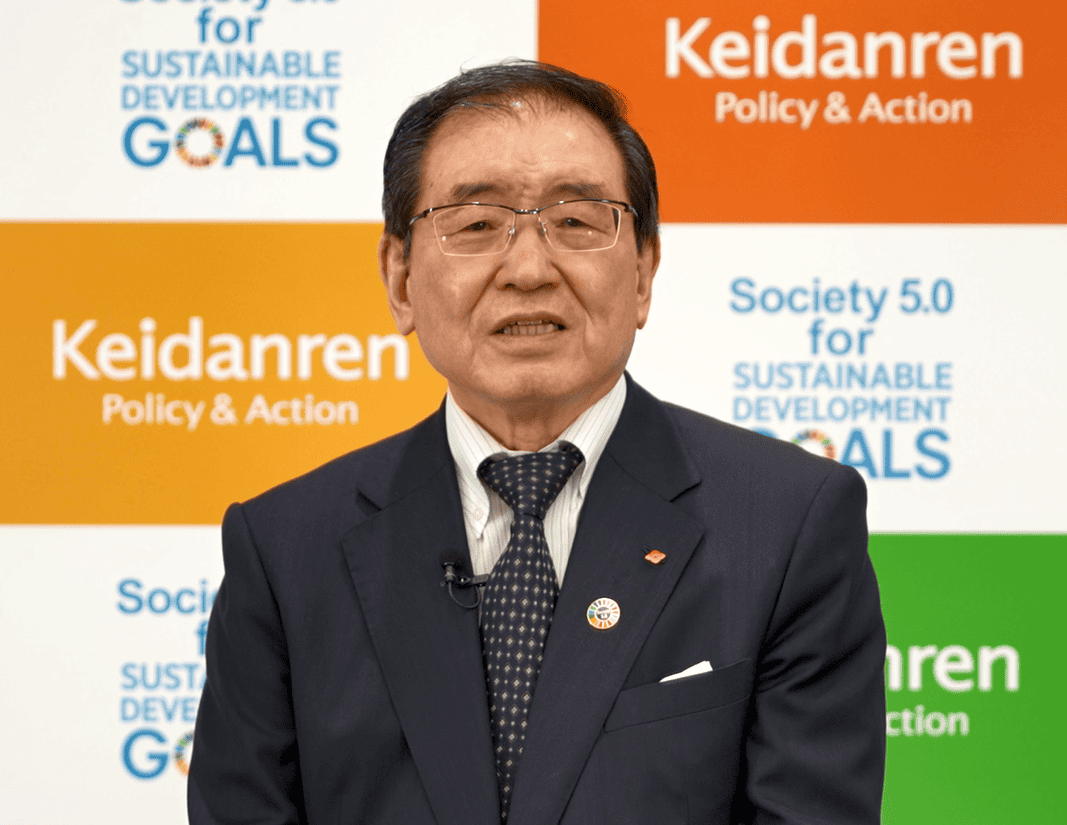
Others are in a similar boat. According to Ito, 40 to 50 Japanese firms now have corporate economic security divisions, including the manufacturing conglomerate Hitachi, the beverage group Kirin, and sportswear maker Asics. Japanese companies even meet regularly to share knowledge and coordinate activities through industry associations such as Keidanren, Japan’s powerful business federation.
Many of the industry officials interviewed for this article commented that they understand the “obligations” involved in fulfilling the new law, even if they aren’t always thrilled about it.
As Suzuki, at the University of Tokyo, notes, “the basic concept of economic security contradicts economic growth.” But, he says, there has been “a compromise between the government and business that something needs to be done and that economic growth is not the only national objective.”
How that compromise continues to play out in practice, however, will define the future strength of economic security as a guiding principle in Japan. Many industry insiders, for instance, noted that through Keidanren, Mitsubishi Electric and others were able to help shape Japan’s Economic Security Promotion Act as best they could, advocating, for instance, for a prioritization of subsidies over increased government interventions and screenings.
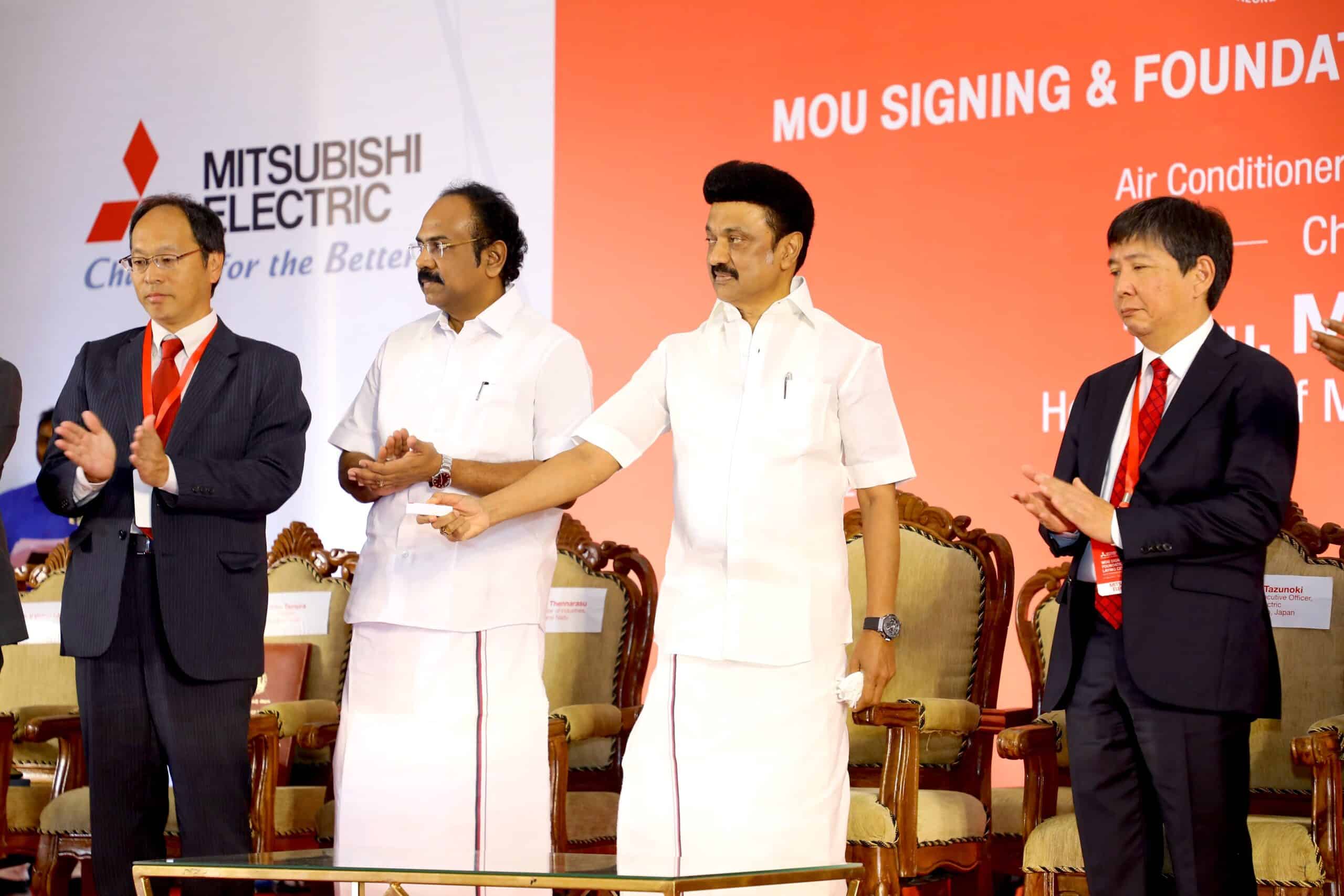
And the subsidies seem to be working. Mitsubishi Electric announced this March that it will invest $745 million in a new semiconductor chip factory on Japan’s southern island of Kyushu. It joins a host of other Japanese and foreign companies, including Taiwan Semiconductor Manufacturing Company, in receiving government support to increase domestic semiconductor production. In some cases Tokyo is covering half the costs.
On its own accord, Mitsubishi Electric is also building up its regional competitiveness in Asia and Europe with new production activities that once might have been done in China, such as the manufacturing of air conditioners in India and Turkey.
Other Japanese companies are receiving subsidies to move their supply chains from China to third markets, with Southeast Asia often being the destination of choice.
In a recent study, however, Katada and her colleagues show that reshoring policies can’t yet claim much credit. Over the past decade, many Japanese firms have left China in large part because of rising costs and slowing growth in China.
“Businesses will do what businesses do,” says Katada. “The government can throw out carrots, but if reshoring out of China doesn’t cater to the bottom line, then Japanese companies are not going to move.”
People shouldn’t glorify diversification as a simple solution. There are so many different types of diversification, of investments, of exports, of production and supplies.
Aya Adachi, an analyst at the Berlin-based Mercator Institute for China Studies (MERICS)
At the same time, even if Japanese multinationals do pack up and leave China, China may stick around in their supply chains. Japanese companies in Southeast Asia’s main manufacturing destinations have gradually increased their use of local suppliers over time, but the research of Adachi and Koki Shigenoi shows that in 2021 they still sourced on average 13.5 percent of their raw materials and parts from China.
Rather than a one-off, then, diversification is a complex process in which investment often first shifts final assembly production and then component sourcing. Diversifying away from Chinese suppliers is possible, but it is neither quick nor easy.
“People shouldn’t glorify diversification as a simple solution,” says Adachi. “There are so many different types of diversification, of investments, of exports, of production and supplies.”
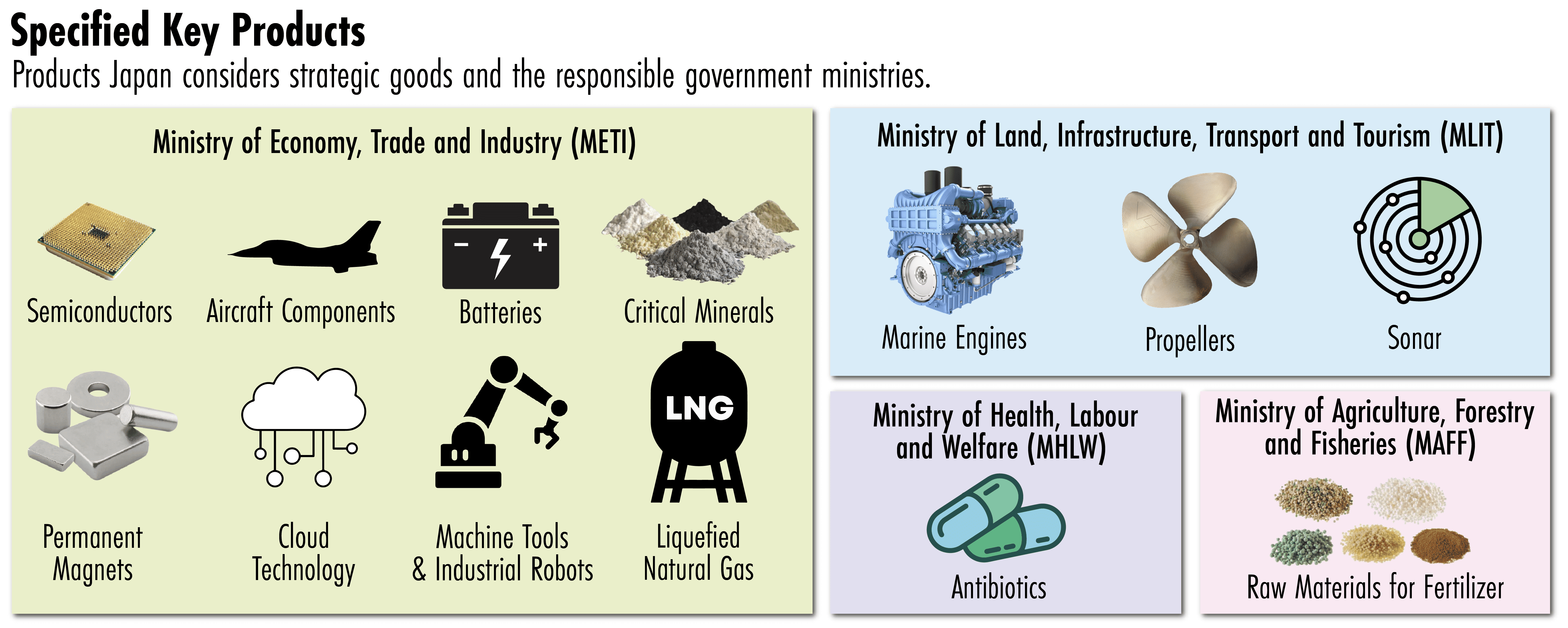
Yet Japanese multinationals see merit in Tokyo’s efforts to carve out some strategic autonomy in global supply chains. “As a whole, the new act is credible for us,” says Ito, at Mitsubishi Electric. “Japanese companies might be reluctant to be regulated, but they were already subject to extra-territorial application of U.S. measures. It is better to have our own regulations.”
Indeed, the most alarming geopolitical risk for Mitsubishi Electric is the ongoing technology and trade rupture between the U.S. and China. For the maker of a vast array of products, the U.S.-China rivalry threatens to split the company’s two biggest overseas markets, and businesses are scrambling to keep up with the U.S.’s ad hoc measures.
In 2018, for instance, the U.S.-China trade war pushed Mitsubishi Electric to reshore U.S.-bound production in China back home to Nagoya to avoid Washington’s tariffs. Then, in May 2019, after Washington imposed tough restrictions on Shenzhen-based Huawei Technologies, the company was forced to put its semiconductor business with the Chinese tech giant on hold.
Washington’s seemingly ever-expanding list of targeted Chinese companies just adds to the headache, as does its diplomatic weight: This January, Washington pushed both Japan and the Netherlands to limit the sale of state-of-the-art semiconductor manufacturing equipment technology to Chinese buyers.
At the same time, the recent arrest of a senior Japanese manager by Chinese authorities on allegations of espionage sent a discomforting reminder to Japan’s business community of the risks of working in China.
Many multinationals are being forced to rethink the very fundamentals of international business, and some observers fear the new law may ultimately hurt Japanese companies’ bottom lines. Kiyoyuki Seguchi, research director at the Canon Institute for Global Studies, and former chief representative of the Bank of Japan in China, says the environment is adding to an unnecessary hesitancy among Japanese executives to re-engage China after the end of its zero-covid policy.
“Japanese companies are very afraid of the economic security issue and taking the year to judge what might happen,” he says.
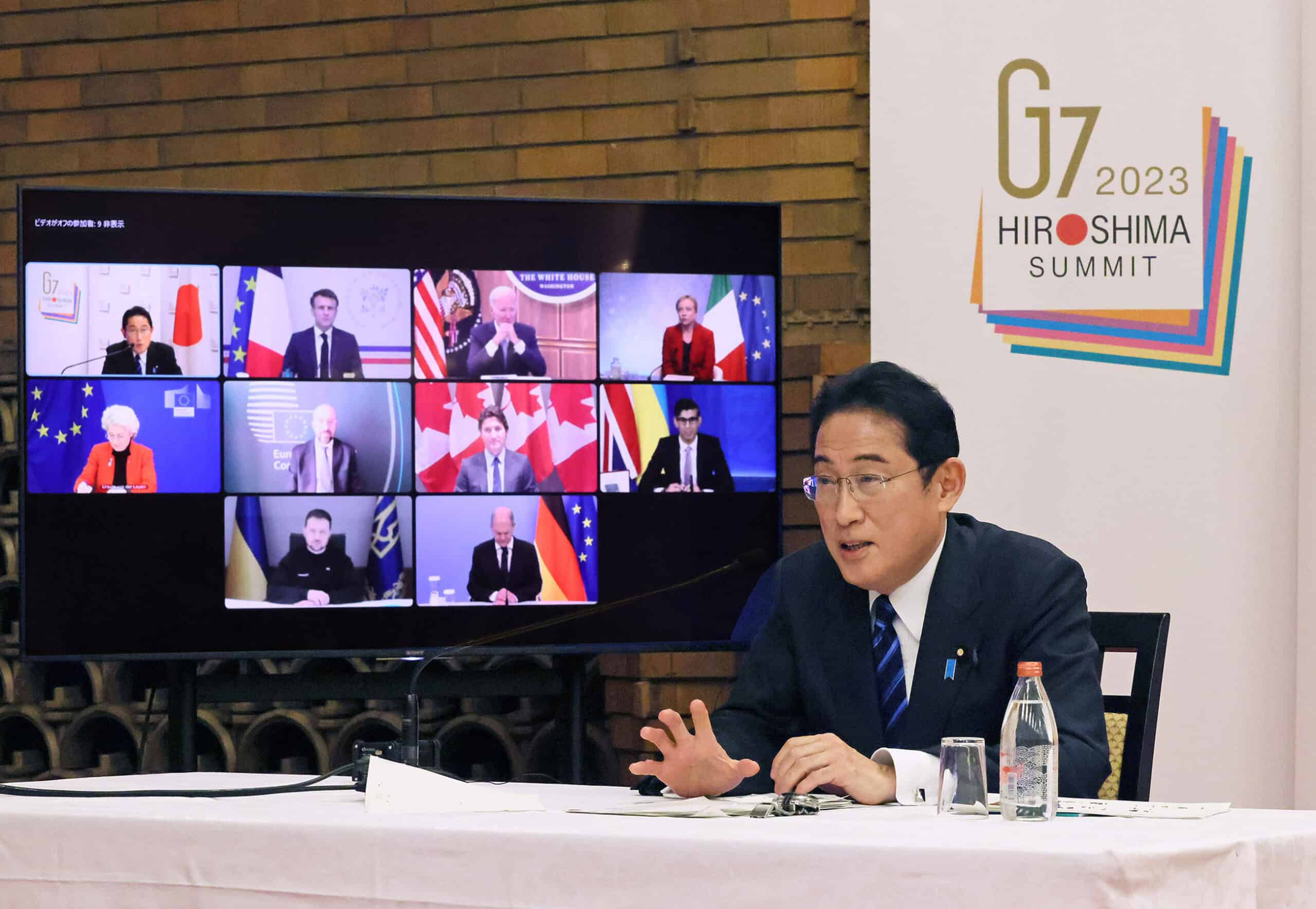
Indeed, Japanese managers are closely watching how the high-level talks between Tokyo and its Western allies play out, and many observers are hoping Japan’s institutionalization of economic security will catch on, offering both better results and stability. Over the years — and more recently with its creation of an economic security division, ministry and law — Tokyo has managed to maintain closer economic ties to China than its allies while still advancing protections over strategic resources, know-how, and technologies across complex supply chains.
With the U.S. and EU just starting down this path — and influential corporations in their business communities still stridently against any restrictive measures — G7 allies might very well find strength in numbers through coordinating economic security efforts that rework select supply chains away from critical dependencies on China without overly upsetting the broader flows of global trade and investment they have all benefited from.
“There is movement on the economic security measures,” says Adachi, at MERICS. “It is too late to turn back the clock on globalization, but Japan’s G7 presidency may just help calibrate its shortcomings.”
Correction: The chart, ‘A New Geoeconomics Order’, was provided by Akira Igata, not Akira Amari as originally published.

Luke Patey is a senior researcher at the Danish Institute for International Studies and Lead Senior Research Fellow at Oxford University’s Institute for Energy Studies. He is author of How China Loses: The Pushback Against China’s Global Ambitions. His work has been published in The New York Times, Financial Times, The Guardian, The Hindu, Foreign Affairs and Foreign Policy. @LukePatey

